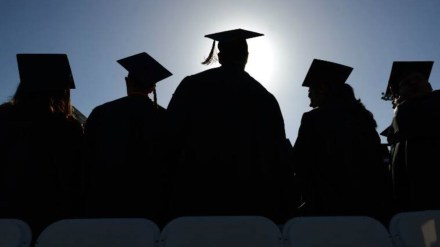By Ravneet Pawha
The Australian Parliament has recently approved the Economic Cooperation and Trade Agreement (ECTA) inked with India in April this year. It has paved the way for the implementation of the agreement on the agreed date, December 29, 2022. This agreement will usher in a new era of relationships between the two nations in the New Year 2023 and beyond. Once implemented, the pact will benefit various sectors. Most importantly, it would have a great impact on education sector and Indian students would have an opportunity to follow their foreign dream with the entry into prominent Australian Universities.
At a time when the Indian students are finding Australia the best option to pursue their foreign degree, this approval can be seen as the timely step, giving students an opportunity to get admission into Australian Universities in the next academic session. This will make the path clear for Indian students to stay, study and earn in Australia by simplifying the visa process. Under the agreement, Indian students will be offered post-study work visa. This will specifically benefit Indian graduates, postgraduates and STEM experts; they will be granted extended post-work visas. According to the agreement, every child who goes for study in Australia will get an opportunity to work there, based on their educational qualification.
After completing their programme, students enrolled in diploma programmes will be able to apply for visas valid for up to 18 months. Similar to this, students seeking bachelor’s degrees can now apply for up to two years of post-study work visas, while those pursuing master’s or doctoral degrees can apply for up to four years. So, they will be able to work in Australia for up to four years. More than 1 lakh India students will get the benefit of post-study work visa under the agreement over the next 1-4 years.
Additionally, Australia will grant employment and vacation visas to about 1000 Indians between the ages of 18 and 30 every year. Students will be allowed to join a job for the entire time or enrol in a study or training programme for up to four months. There will undoubtedly be a chance for students to get international experience, develop their abilities, or improve their financial situation.
This agreement also places a strong emphasis on accelerating research between the two nations. As a result, universities in India and Australia would be able to collaborate, and a conducive climate for researchers will be created. Students who have an interest in research are much more likely to succeed in their endeavours. In conjunction with the agreement, the two governments plan to launch dual degree programmes that will raise the bar for research.
The agreement includes clauses that call for the opening of communications between the two countries’ professional organisations. MRAs in nursing, architecture, and other services will be among the subjects covered. Professionals will find it easier to travel, enabling Indian workers to explore their options in Australia. 1500 Indian CAs are currently employed by MRA in Australia. Also, under the agreement, Indian Yoga teachers and chefs will get the annual visa quota. With the approval of the arrangement, it can be anticipated that experts from other fields may eventually explore opportunities in Australia.
In addition, it is anticipated that over 10 lakh employment will be created in India as a result of this deal over the following 4–5 years. This will be extremely advantageous for both the working professionals and the students who will enter the workforce during this period. This will not only strengthen ties between the two countries but also increase welfare for citizens and raise living standards.
With these significant clauses, the agreement appears to increase cooperation in the educational field. Australian education has been in great demand worldwide due to its excellent quality, stringent accreditation criteria, and strong support system for overseas students, relevant curriculum, and higher return on investment. The approval of the agreement will help Indian students reap the benefits of a sophisticated educational system and achieve their life goals.
The author is vice president (Global Alliances), CEO (South Asia) of Deakin University. Views are personal.
